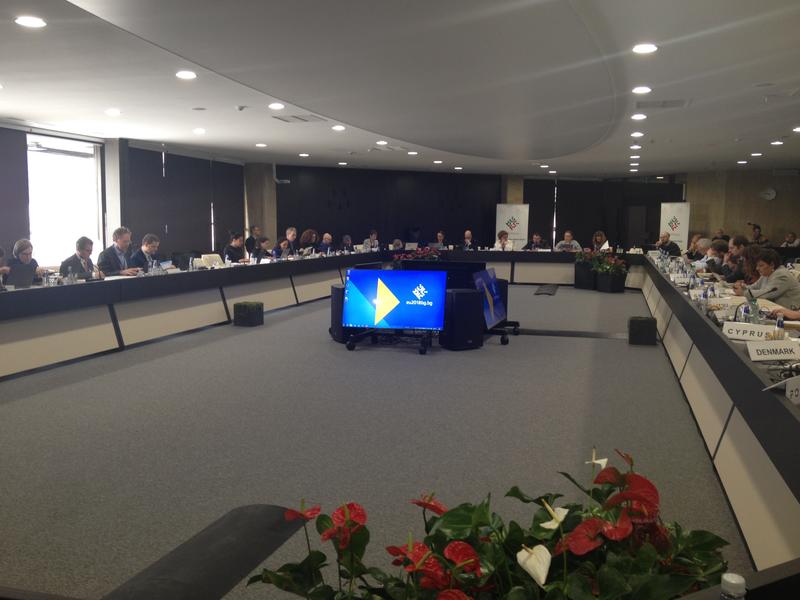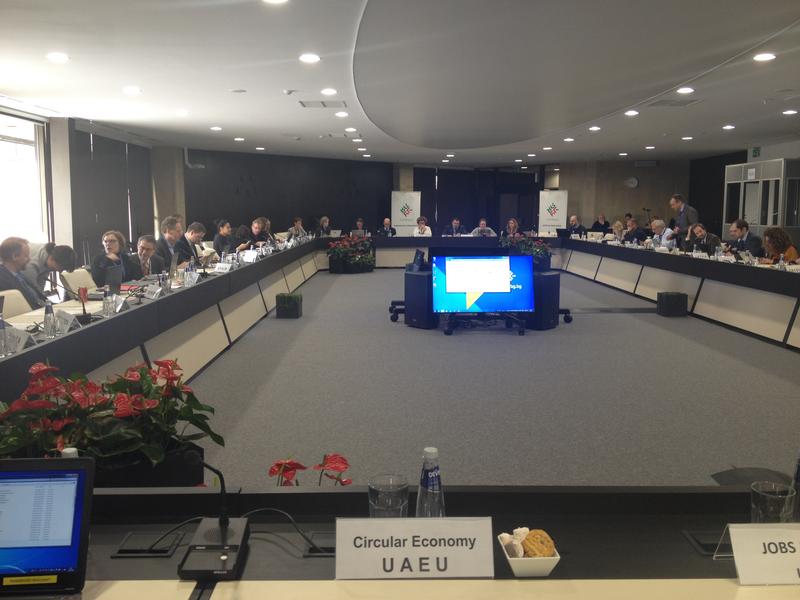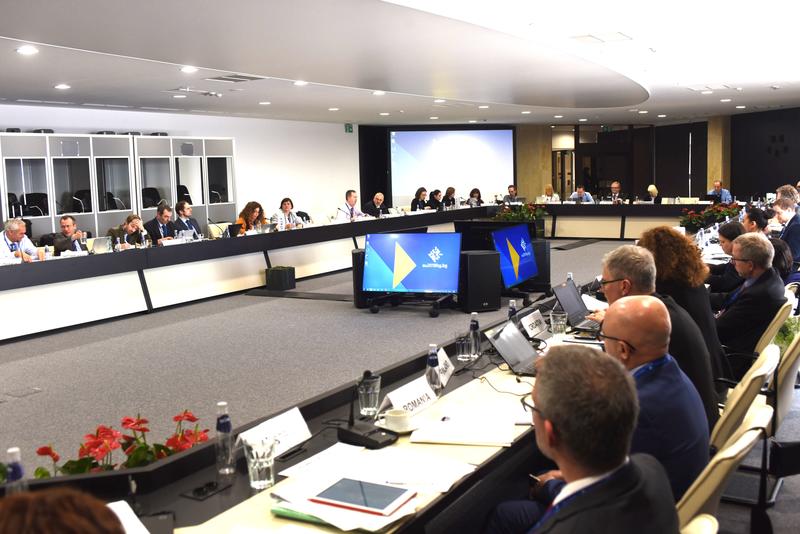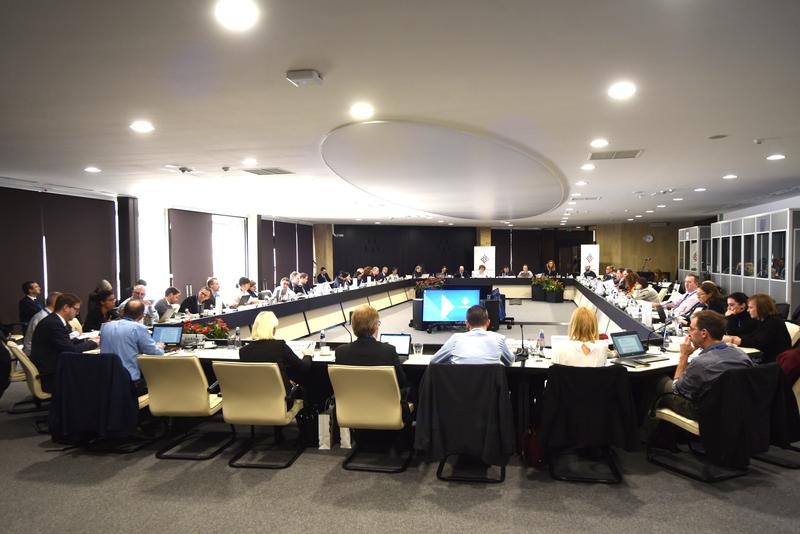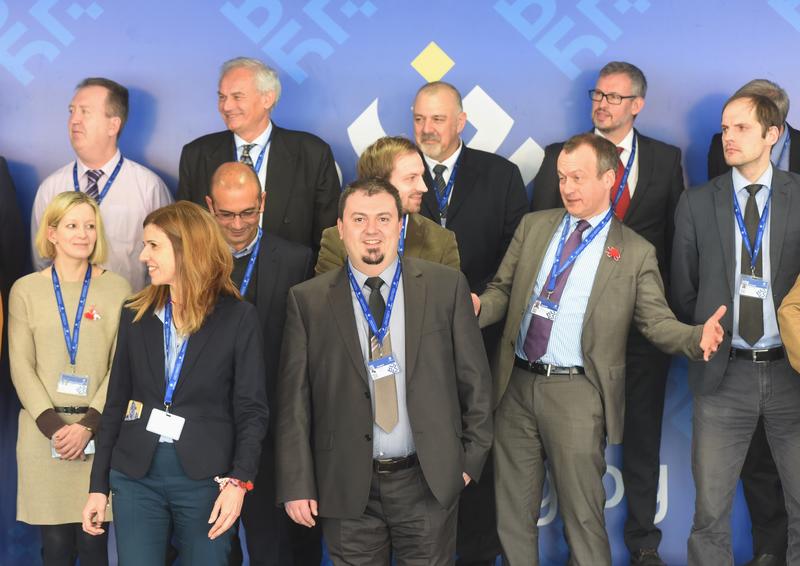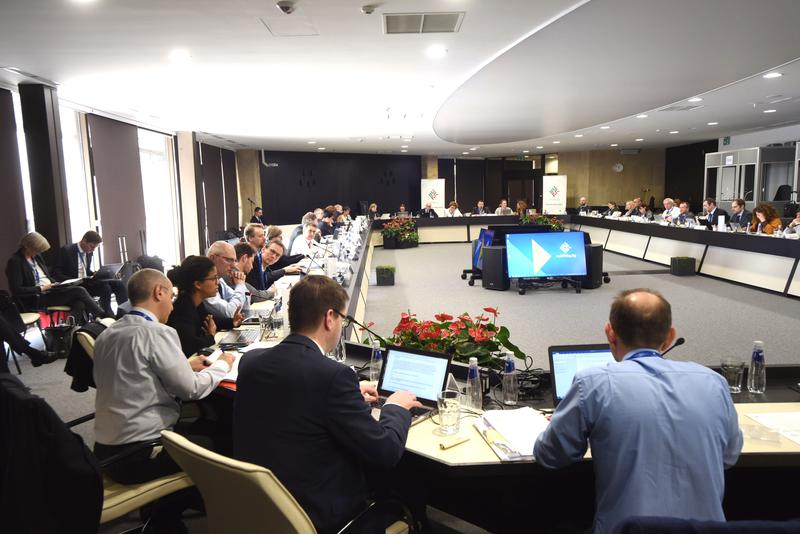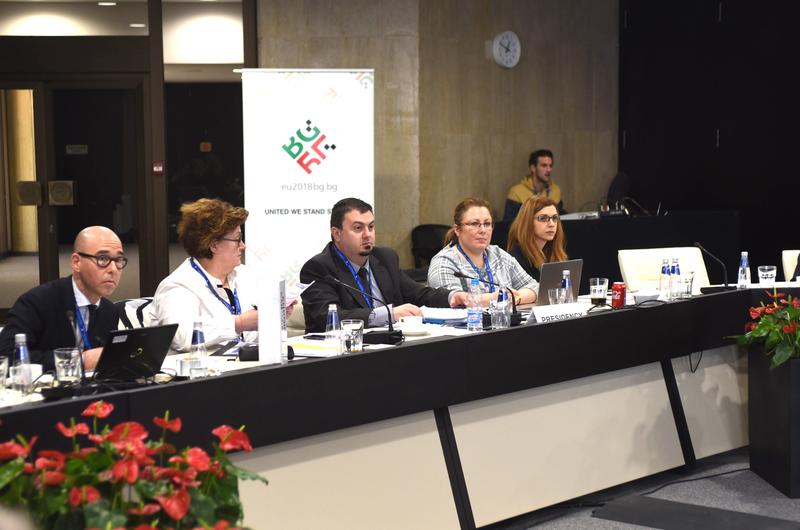The new challenges facing modern cities and possible solutions were discussed in Sofia
The new challenges facing modern cities and possible solutions were discussed in Sofia
By Ministry of Regional Development and Public Works
European cities, including Bulgarian ones, where over 70% of the population live, face new challenges related to migratory pressures, worsened urban infrastructure, the environment and high unemployment. The common problems at the European level are the main reason for seeking common solutions for the development of cities and regions. Around this opinion, the representatives of the Urban Development Working Group (UDG) met at the meeting on 01.03.2018 in Sofia. The meeting was hosted by the MRDPW, whose scope of competences include territorial cohesion and urban policy. The representatives admirited Bulgarian approach to organizing and holding a special session for urban development. During the meeting, specific proposals and measures were also discussed to address the challenges facing cities, as well as the progress of the twelve partnerships on priority themes part of the Urban Agenda for the EU involving representatives of Member States, city authorities, The European Commission, Managing Authorities for Operational Programs, The EIB, experts, NGOs and representatives of the private sector.
At the end of 2018, the first results of the four pilot partnerships launched within the Urban Agenda for the EU are expected to be presented, and their achievements can be used to work on the other priority themes and partnerships. The twelve priority themes are set out in the main document laying the foundation for the actual implementation of an urban development policy at European level – The Pact of Amsterdam adopted in May 2016. Bulgaria has participated in 4 of them through the participation of 3 bulgarian cities - Sofia (under the theme "Digital Transition"), Burgas (under the theme "Urban Mobility") and Gabrovo (under the theme "Innovative Public Procurement"), as well as a ministry -MOEW (under the theme "Climate Adaptation"). The remaining 8 partnerships are in the field of air quality; Housing policy; social inclusion of migrants and refugees; urban poverty; circular economy; jobs and skills in the local economy; energy transition to renewable energy and energy efficiency; sustainable land use and nature-based solutions.
The participants united around the idea of setting up a special task force to coordinate and manage the implementation of the 12 priority themes and partnerships. At the meeting in Sofia were discussed the specific proposals on the format, composition and way of organizing the work of the working group as well as the cooperation of the Member States in it.


